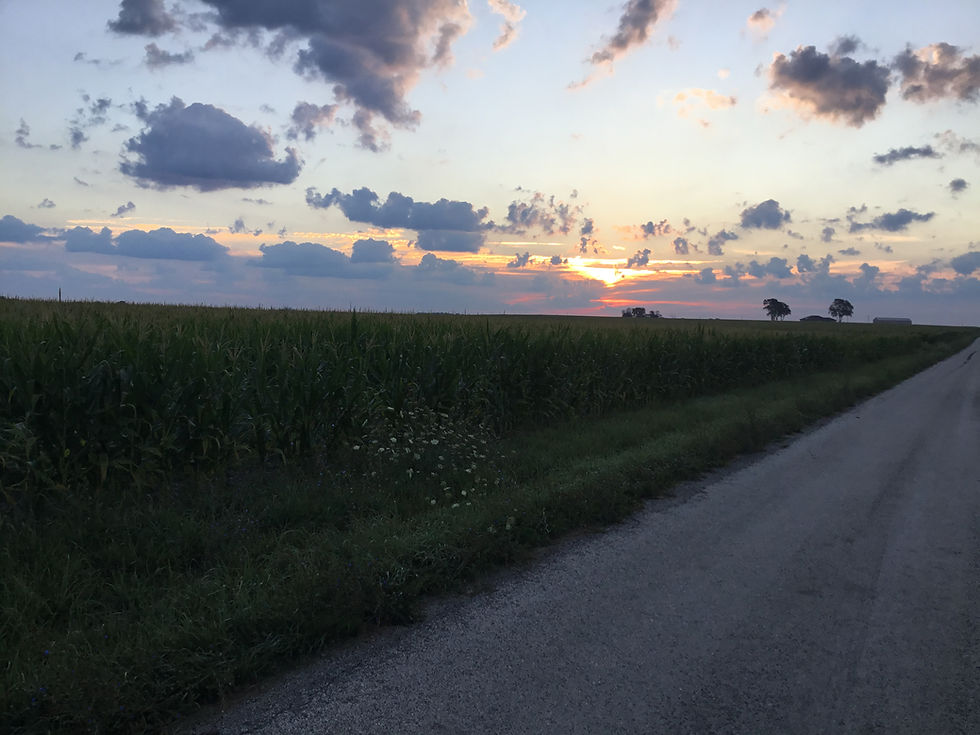Online land auctions enter new role in market
- michaellauher
- Jun 5, 2022
- 3 min read
Updated: Jun 16, 2022
Reprinted with permission from an article I wrote for Prairie Farmer in February 2022.
They say necessity is the mother of invention, and that was the case for auctioneers and brokers during the pandemic lockdown. How do you get people together to buy property when people are no longer allowed to get together?
It turns out, you innovate.
Internet auctions are not a new thing. Back in the fall of 1995, eBay sold its first product, a broken laser pointer, and history was made. Internet real estate platforms surfaced around 1999, and the use of the internet for land transactions has been growing ever since.
Prior to the pandemic, farmland was auctioned over the internet, but there were questions about how effective the sales were compared to live events. Could the impersonal click of buttons on a computer screen really compete with the excitement of an auctioneer’s chant as bids were drawn out from a mesmerized crowd? And what about participation? Most farmers who can afford to buy farmland are from the older generation. Are they willing, ready and able to participate virtually by adopting and using new technologies?
The pandemic changed how we do things.
It forced us to learn how to interact virtually. During the height of the lockdown, my family started getting together once a month to keep up on each other. We affectionally call it the Lauher Family Summit. Even my 84-year-old father-in-law — who received an iPad prior to the pandemic to speak to his son and play gin rummy when he couldn’t scare up a live competitor — now uses his iPad exclusively to keep up with his children and grandchildren. Old dogs can learn new tricks.
Selling the farm
This latest farm sale season has been an exciting one. Land prices have reached levels not seen before, and internet auctions have been a large part of that.
I recently had the opportunity to sit down with David Klein, managing broker for First Mid Ag Services, and one of his brokers, Chad Hoke, at the annual meeting for the Illinois Society of Professional Farm Managers and Rural Appraisers.
Klein reported that online auctions have been very successful for his firm, and he’s seen them fall into one of three categories:
Online auction. These are much like the eBay-style of auctioning, with no personal interaction. A property is offered up for sale online for a certain amount of time, and when the time runs out, the auction is over. Hoke said he’s had good success with that type of auction.
“In one of my auctions this fall, the successful bidder was someone who would not have been able to attend the sale had it been a live auction,” he added.
Virtual live auction. This type of auction allows for some interaction with the auctioneer through a video format. Bidders can either bid online or have a proxy do it for them online or through the telephone. This is more like a live auction in that the bids are called out, and the property sells when the auctioneer determines the final bid has come in and it meets the reserve price.
Hybrid auction. These are held in front of a crowd and broadcast over the internet, and Klein thinks they’re here to stay. They have some challenges, in that participants have to fully understand the terms, contract and title commitment, so communication is key. But they bring out traditional local buyers while also giving better access to institutional and investor buyers.
“Some buyers like the anonymity that online auctions bring, while others prefer to know who they’re bidding against,” Klein adds.
It’s a challenge or an opportunity, depending on how you look at it. But if it’s a good farm, properly marketed, it’ll bring a high price. The key is to listen to sellers, and match their goals and objectives to the sales practice that best meets them.





Comments